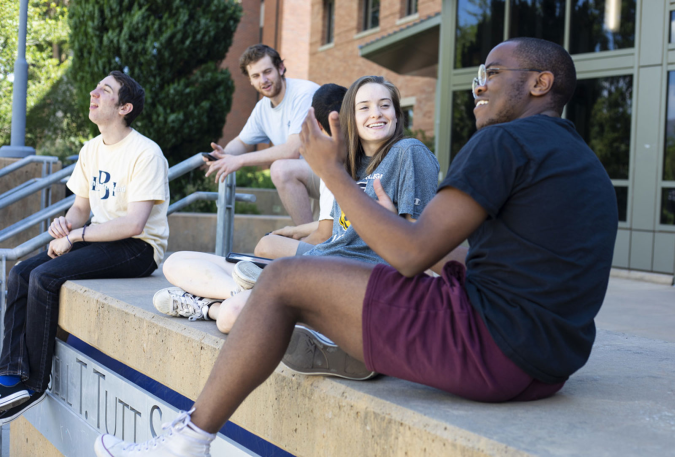
The Charge:
To create one of the premier summer learning experiences in the U.S., our summer program is driving creative development of new courses that draw on faculty's research and offer opportunities for intentional collaboration that enrich CC's scholarly environment. By increasing flexibility for faculty to explore new concepts and pedagogies, our summer program will enhance the liberal arts experience at Colorado College for a new era of learners.
What's Happening:
Over the summer, faculty regularly focus their efforts on research interests or fine-tuning publications, but in recent years, CC faculty are increasingly taking this time to develop new courses and teaching pedagogies that support their research while bringing students into current developments in their field. Summer's more relaxed pace and fewer co-curricular commitments allow faculty and students to test new theories and apply the liberal arts to today's most pressing topics.
During the academic year, faculty and departments offer an array of degree requirements and topics courses, allowing students to progress through their major and focus on aspects of their discipline that are of personal interest or that may lead to future research or professional work. "Part of my goal for Summer Session is to complement each department's academic year schedule, either by offering additional sections of in-demand degree requirements, or by creating a 'sandbox' for faculty to test new courses and collaborations that respond to new research in their academic field and students' expressed interests," says Jim Burke, director of Summer Session.
One newly developed course in Summer Session 2019 was Topics in Sociology: From Title IX to #MeToo: Gender-Based Harassment and Assault, developed and taught by Professor Gail Murphy-Geiss. The course examined gender-based harassment and assault in law and culture in the United States. "When I decided to teach it, I didn't consider it a 'test run,' but a way to delve into the literature on the topic and begin discussions with students," says Murphy-Geiss. The course drew interest and enrollment from students of different majors and different classes, including three visiting students.
Along with developing new courses, Summer Session provides space for faculty to collaborate and team-teach, enhancing students' academic experience. Kristine Lang, associate professor of physics, and Anthony Bull, associate professor of human biology and kinesiology, used the summer term to pilot their co-taught biophysics course. "As a physicist teaching a biophysics course, the physics part wasn't a problem, but the biology part was always a bit challenging. The best solution would be to team-teach with a biologist. Teaching in the summer made room for me to transition to a team-teaching model," says Lang.
With fewer commitments during the summer months, faculty are able to find time to engage peers and enhance existing coursework with interdisciplinary lessons, and in some cases, co-instruction. Lang continued, "the undistracted space of the summer gave us time to observe and discuss each other's teaching, and thereby develop a fully integrated course for the 2019-20 school year."
The Office of Summer Session's role in supporting the development of creative scholarship and unique academic experiences is central to its mission. As Colorado College continues its progress towards offering the finest liberal arts education in the nation, it will take the sustained commitment of Summer Session and departments across campus to pursue innovative subject matter and allow faculty to experiment with new research and pedagogies. "The summer format, with usually fewer students and no committee work, etc.," says Murphy-Geiss, "freed up time to explore a topic with students as opposed to my more normal teaching to the students. Learning together always happens at CC, but it felt more like a mutual exploration in the summer. Using the sandbox metaphor, we were playing together in the sandbox, building the course together and seeing if it would hold up."





